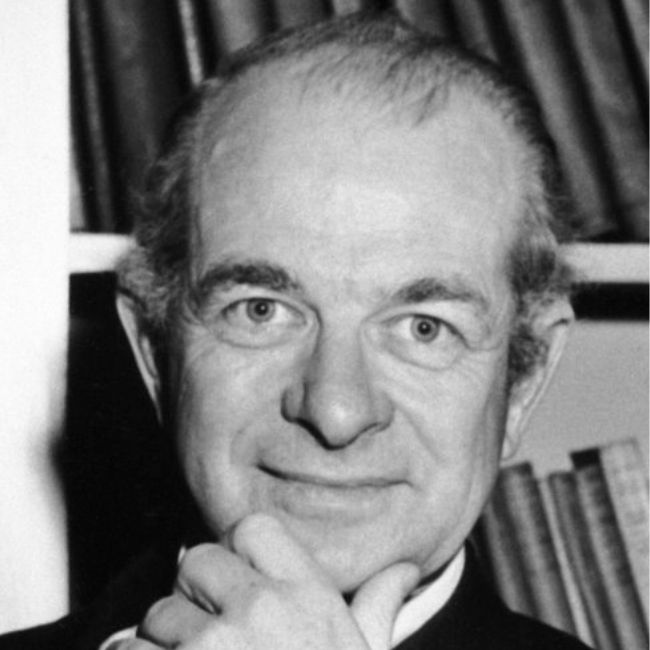
Remembering Linus Pauling: A Pioneer’s Journey
Recommended for Linus Pauling
The Remarkable Journey of Linus Pauling: Scientist, Peacemaker, and Educator
Early Life and Education
Linus Pauling, a name synonymous with brilliance and controversy, was born on 28 February 1901 in Portland, United States. His ancestors were hardworking farmers from Prussia, and his father ventured into pharmaceutical sales among other professions.
From these humble beginnings, Linus Pauling embarked on an educational journey that would make him a household name in the scientific community.
Initially, he attended Oregon State University before earning his PhD from the prestigious California Institute of Technology. Remarkably, his association with the institution lasted a lifetime, signifying the deep impact he had on the academic world.
Academic Achievements and Scientific Work
Linus Pauling’s work was revolutionary, spanning various domains of chemistry. He was particularly fascinated by the relationship between quantum mechanics and chemical bonding, a relationship he explored in the 1930s.
His groundbreaking research led to significant discoveries, including the structure of the alpha helix, a fundamental component in proteins.
- Quantum Mechanics and Chemistry: Pauling utilized the principles of quantum mechanics to explain how atoms bond to form molecules, fundamentally changing the field of chemistry.
- Biological Molecules: His studies on the structure of vital biological molecules contributed immensely to biochemistry and molecular biology.
Pauling’s work in these areas was not just academic; it had far-reaching implications, influencing future research and studies in various scientific fields.
Advocacy and the Nuclear Age
The devastating effects of the atomic bombings of Hiroshima and Nagasaki profoundly impacted Linus Pauling. Witnessing the horrific consequences of nuclear weapons, he became a vocal opponent of the nuclear arms race. His commitment to peace and disarmament led him to the forefront of the Pugwash movement, which aimed to reduce the threat of nuclear war.
Despite facing accusations of communism and having his passport revoked, Pauling remained steadfast in his anti-nuclear advocacy, demonstrating his resilience and dedication to global peace.
Nobel Prizes and Global Recognition
Linus Pauling’s exceptional contributions to science and humanity did not go unnoticed. He was awarded the Nobel Prize in Chemistry in 1954, acknowledging his innovative work in chemical bonding and molecular structures. However, his quest for peace and disarmament is perhaps his most notable legacy.
After drafting the “Hiroshima Appeal,” he played a crucial role in the global movement against nuclear weapons, which ultimately led to the signing of a nuclear test ban treaty.
His relentless efforts were recognized when he was awarded the Nobel Peace Prize in 1962, making him one of the few individuals to receive two Nobel Prizes in different fields.
- Nobel Prize in Chemistry: Awarded for his groundbreaking work on chemical bonds and molecular structures.
- Nobel Peace Prize: Recognized for his tireless efforts in advocating for peace and the elimination of nuclear weapons.
Legacy and Influence
Beyond his scientific achievements and peace activism, Linus Pauling was a prolific author and educator. He penned approximately 1,200 articles and books, with around 850 focused on scientific subjects. His ability to convey complex ideas in an understandable manner made him a beloved figure among students and peers alike.
- Educator and Author: Pauling’s extensive writings continue to educate and inspire future generations of scientists and peacemakers.
- Inspirational Figure: Despite facing political persecution, Linus Pauling’s resilience and dedication to his beliefs have made him a role model for many.
Explore Science Month’s Related Stories
Historical Figures and Their Contributions
- Physics: Battery, Atom, Sound, Waves, Particle
- Invention/Engineering: Telephone, Lightbulb, Transistor
- Astronomy: Telescope
Past, Present, Future
- Foundations: Ancient India’s Pioneering Math Contributions
- Today’s Impact: ISRO Company: India’s Space Odyssey, S Somanath Inspires Science Month
- The Future: Artificial Intelligence: Transforming Everyday Moments
Science of Flavor
Watch a video
Dive into the fascinating world of history with this must-watch YouTube gem! “Nobel Prize” drops an absolute treasure: Linus Pauling receiving his Nobel Prize in 1962.
Curious Times is a leading newspaper and website for kids. We publish daily global news aligned to your learning levels (also as per NEP 2020): Foundational, Preparatory (Primary), Middle and Senior. So, check out the News tab for this. We bring kids’ favourite Curious Times Weekly newspaper every weekend with top news, feature stories and kids’ contributions. Check out daily JokesPoke, Tongue Twisters, Word of the Day and Quote of the Day, kids need it all the time.
ME – My Expressions at Curious Times is your place to get your work published, building your quality digital footprint. And it is a good way to share your talent and skills with your friends, family, school, teachers and the world. Thus, as you will step into higher educational institutes your published content will showcase your strength.
Events, Quizzes and Competitions bring students from over 5,000 schools globally to participate in the 21st-Century themes. Here schools and students win certificates, prizes and recognition through these global events.
Sign-up for your school for FREE!
Communicate with us: WhatsApp, Instagram, Facebook, Youtube, Twitter, and LinkedIn.
0 (Please login to give a Curious Clap to your friend.)
